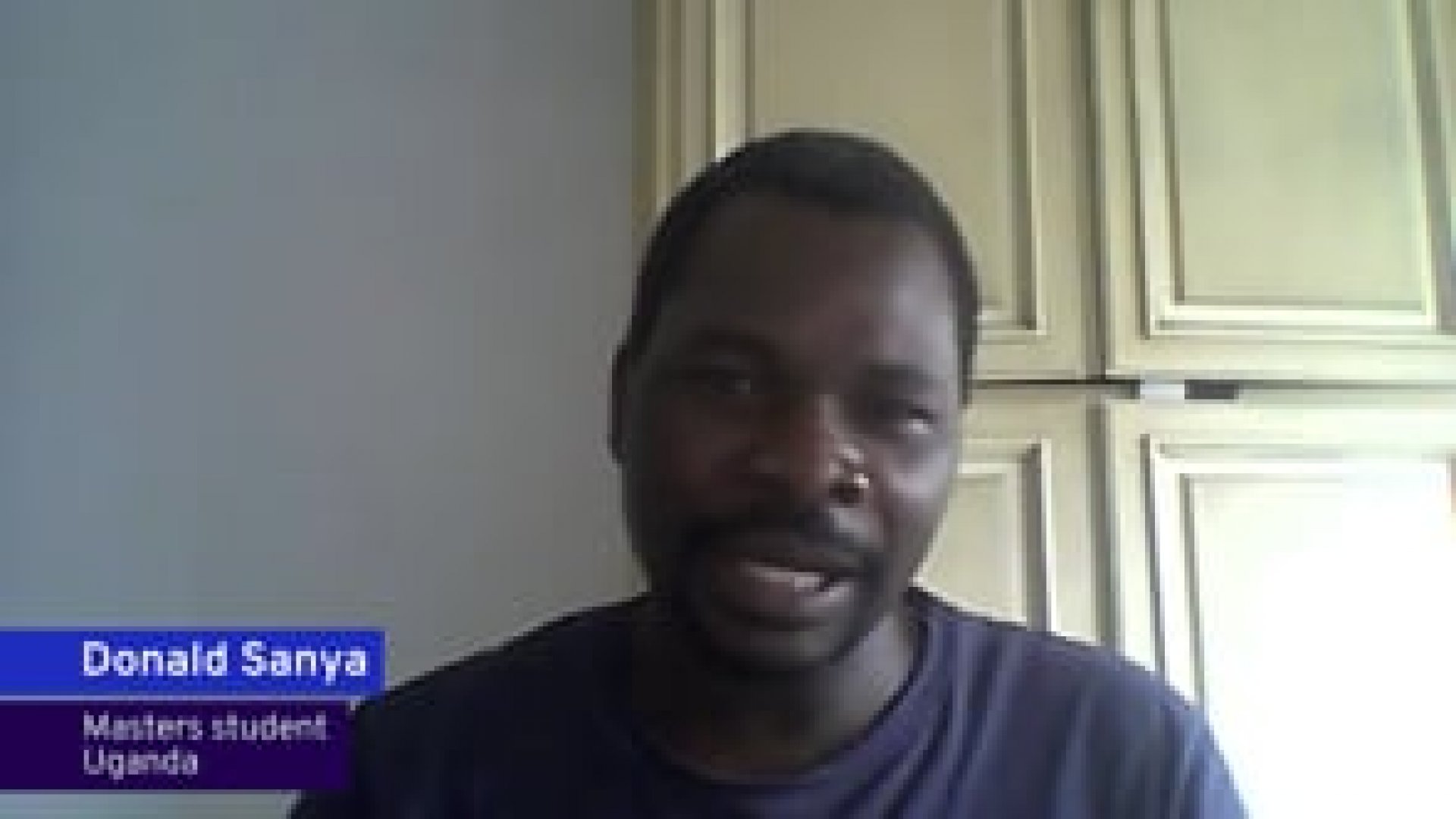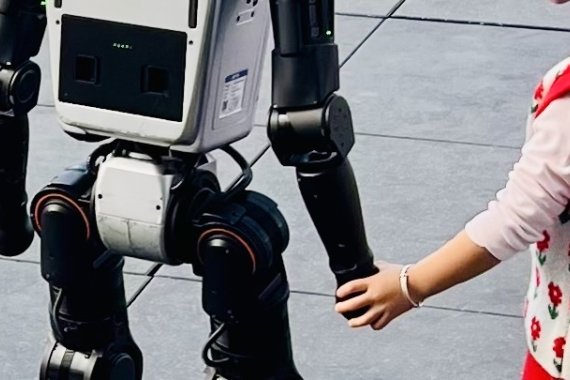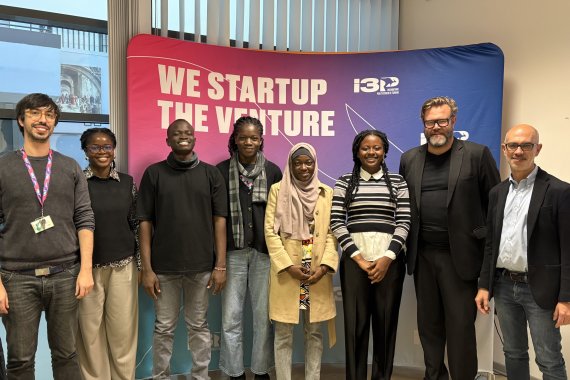Masters of resilience
Masters of resilience
Students reflect ahead of a graduation marked by COVID-19
1 juin 2020
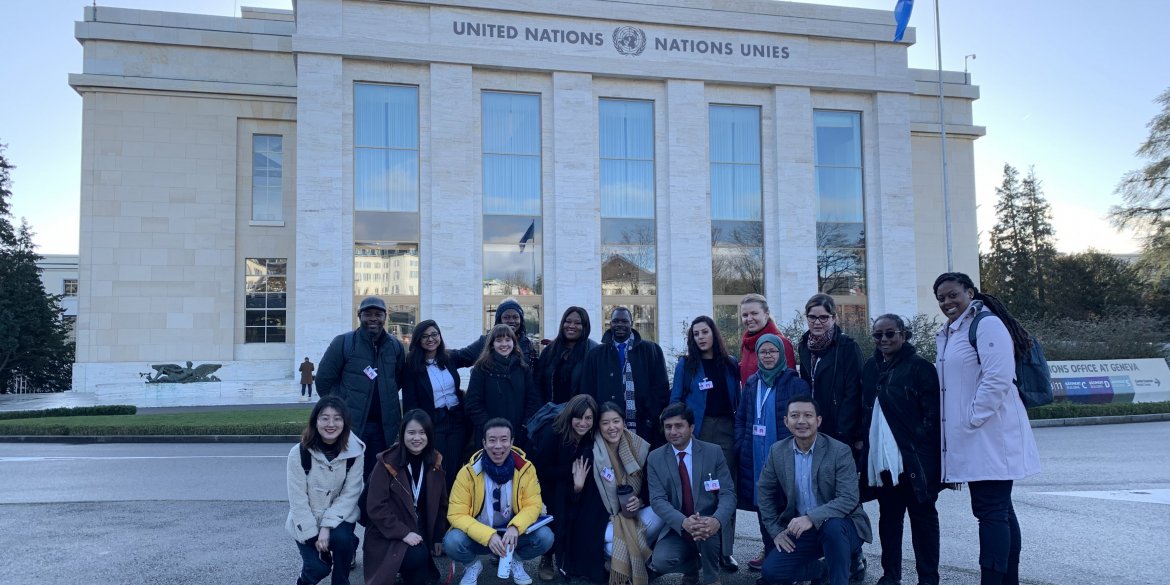
2020 vision
This year, 20 minds from 17 different countries arrived on campus, ready to become agents of change. But, their capacity to manage change was tested right away.
Normally, in the Master in Management of Development, students study the theoretical and operational frameworks for international development through an interdisciplinary lens. The Master is organized into sections: online and face-to-face learning, applied project work, and thesis writing.
The 2020 cohort’s experience is now marked by the COVID-19 pandemic. Many students had just landed in Italy for the face-to-face part of the Master when the nationwide lockdown began. It uprooted the students’ learning rhythms and disrupted their new sense of community.
Every day has been an opportunity to learn.
Luz Velasco
Colombia
A cold January, filled with icebreakers, optimism, introductory lectures, and even a study visit to the United Nations, helped the group bond. Pakistani student Saeed Ahmad described it as “the experience of a lifetime.” But, instead of a first exam, the students got their first global pandemic.
Preparing for the unpredictable
Enrolling in a Master is an investment in your future, even if you’re not sure exactly what the future will look like, or even what your job will be. The Masters available at the Turin School of Development aim to prepare students for unpredictable situations.
Soft skills are now and will continue to be in demand. According to the World Economic Forum's Future of Jobs report, capabilities like analytical thinking and complex problem-solving will become steadily more important.
During the Master, students explore topics like the policies and standards protecting people and their planet, methodologies for fostering positive change, and techniques for promoting equitable growth. They become “masters” of resilience and adaptability.
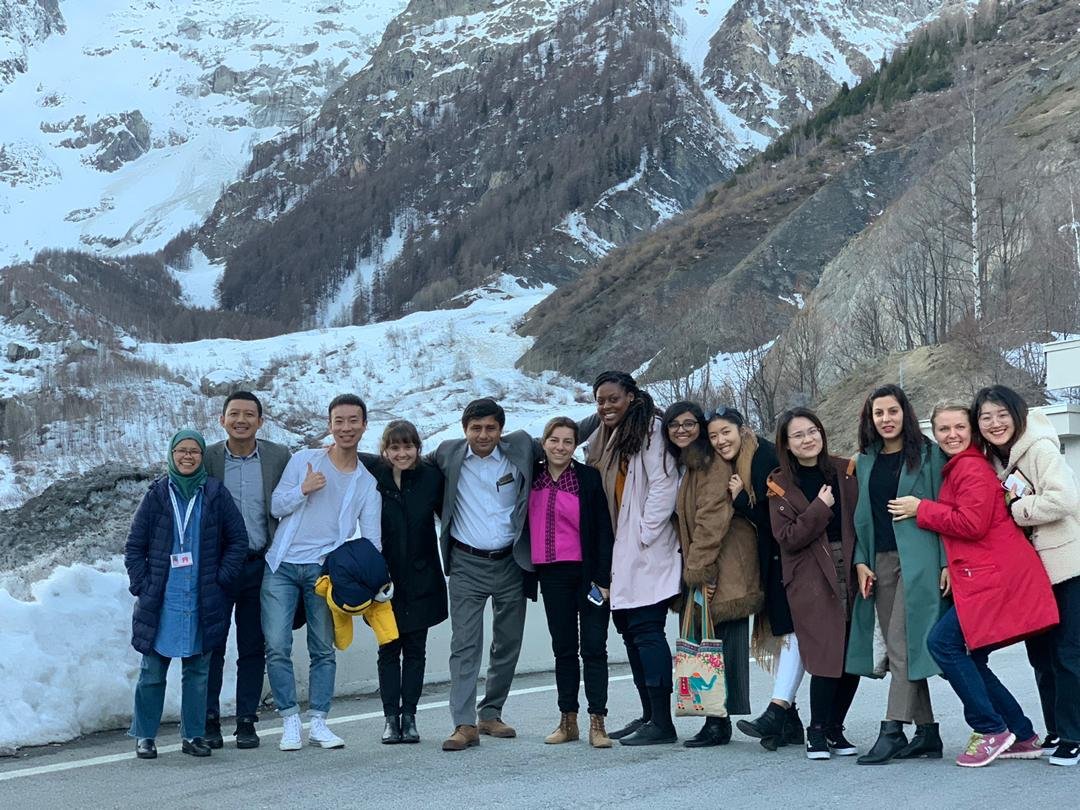
Student snapshots
Despite the distance, students’ sense of community strengthened. Stories of adaptability and resilience became the new normal.
Coordinators checked in on students regularly. Tech-savvy professors put together interactive activities. Students displayed courage, unity, and empathy and motivated one another to persist.
Evelin Toth, a Croatian student who also works on labour education at the Centre, believes that their soft skills training class shaped that solidarity.
Ideas are endless. And so is our energy and happiness.
Evelin Toth
Croatia
The sudden transition to distance learning in near-isolation was a jolt. Mexican student Pilar Alonso made the roller coaster adjustment alone.
“My Masters experience went from 200% paranoia to business as usual,” she said. “I spent my 69 days of lockdown in a room of 40 square meters. It was my bedroom, classroom, kitchen, bathroom, and gym. My only companion was a recently-purchased basil plant.”
To cope with the solitude, the students decided to organize a digital party through a video call. They sang karaoke in empty rooms and clinked distant cups in virtual cheers. They had fun.
But, for Pilar, it was a bittersweet moment.
“When I closed my laptop, it made me nostalgic for the missed adventures and details of our personal lives that were too difficult to share through a screen.”
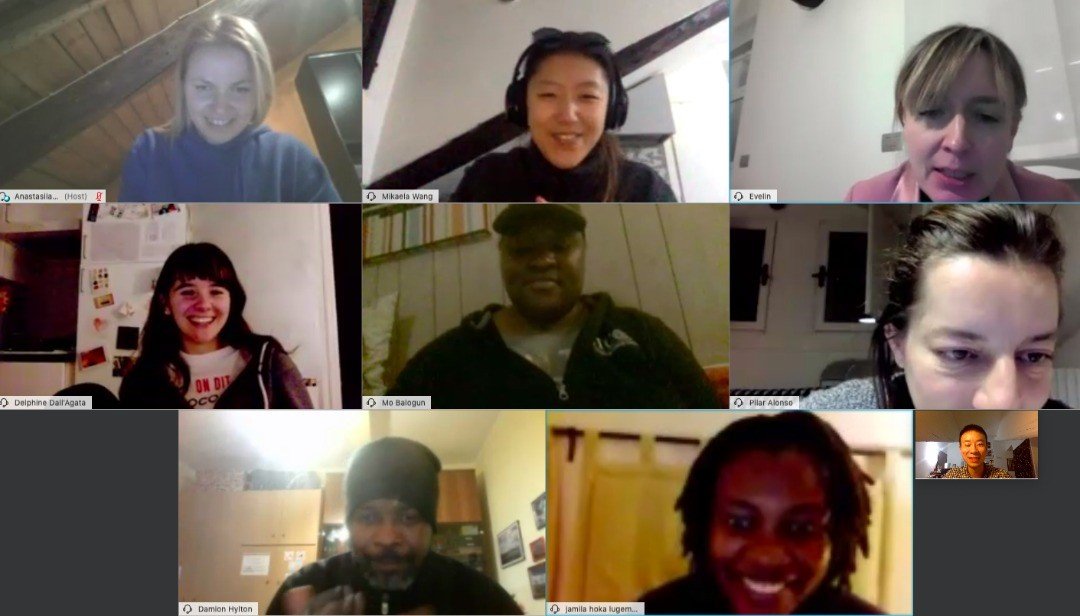
Pockets of virtual interaction became precious. Lockdown also served as a time for thoughtful reflection. Colombian student Luz Velasco felt nostalgic for a shot of Italian espresso, because it was so different from her coffee and traditions.
“Turin has shown me the power of an after-coffee—time to awaken and share emotions and concerns,” she said. “I missed it every single day in quarantine.”
Over nearly 70 days of lockdown, students sipped their coffee, watered their plants, and nurtured their friendships as best they could. They continued studying and supporting one another. The measures were lifted in time for graduation.
We learned a universal language, the language of lockdown.
Delphine Dall’Agata
France
Learning in lockdown
The transition to learning in a global lockdown wasn’t easy. But, students and staff took up the challenge with a positive attitude and a beginner’s mind.
The ITCILO mobilized a digital taskforce to move courses online, trained the trainers, and managed the overall shift. Learning wasn’t canceled, but social distancing required distance learning. The Masters succeeded thanks to an already-strong culture of innovation and tight-knit teams, full of people who are always ready to learn something new.
The Centre also provided creative and technical support on the ILO’s First Person: COVID-19 stories project. Through short video clips, workers, representatives, and officials describe how the pandemic has changed their work and their lives.
For the foreseeable future, most of life has moved online. It’s our new normal. More than ever, universities and other learning institutions around the world are using digital tools to conduct classes. In fact, Cambridge University has decided to move all its lectures online until summer 2021.
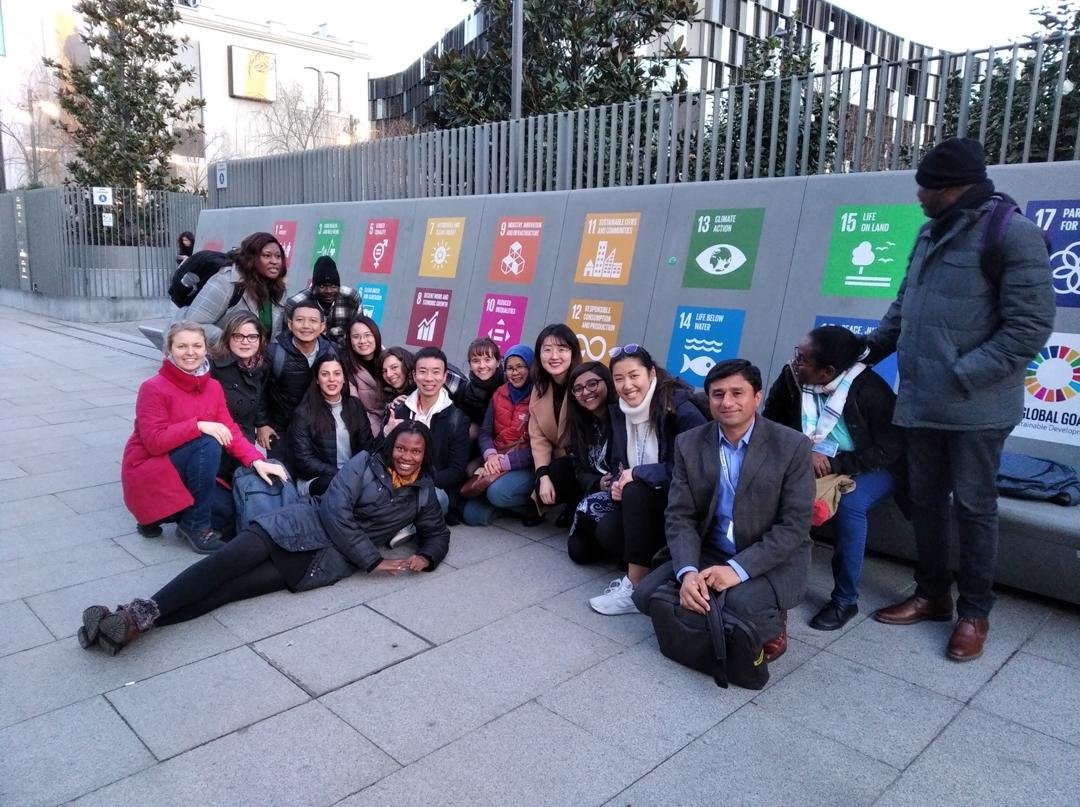
Lasting effects
One of the silver linings of being stuck at home has been the opportunity to reflect on learning and training. The student community has been contemplating complex questions: What is important now? What changes are needed? What will the future look like?
The new graduates of the Master in Management of Development are standing on the edge of the unknown. Their collaborative and resourceful response to the current crisis is testimony to their resilience.
In his future career, Ugandan student Donald Sanya strives to be an agent of social change.
The next challenge in the world of learning will be fitting the pieces back together in a way that looks, feels, and works better for these students—and for everyone.
Find your fit
The Turin School of Development prepares students to face today and tomorrow's most pressing social, economic, and environmental issues. Explore all 10 Masters now.
